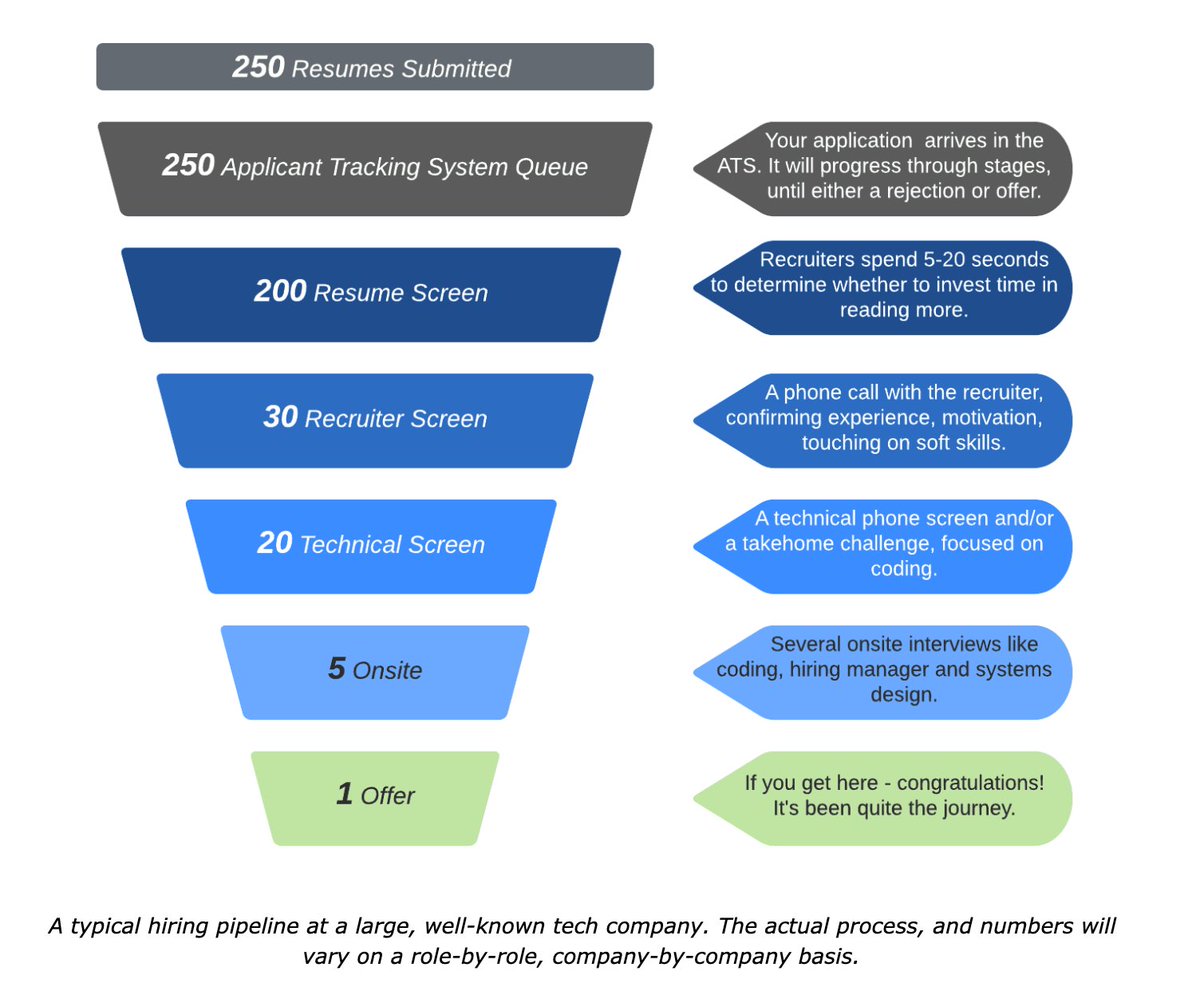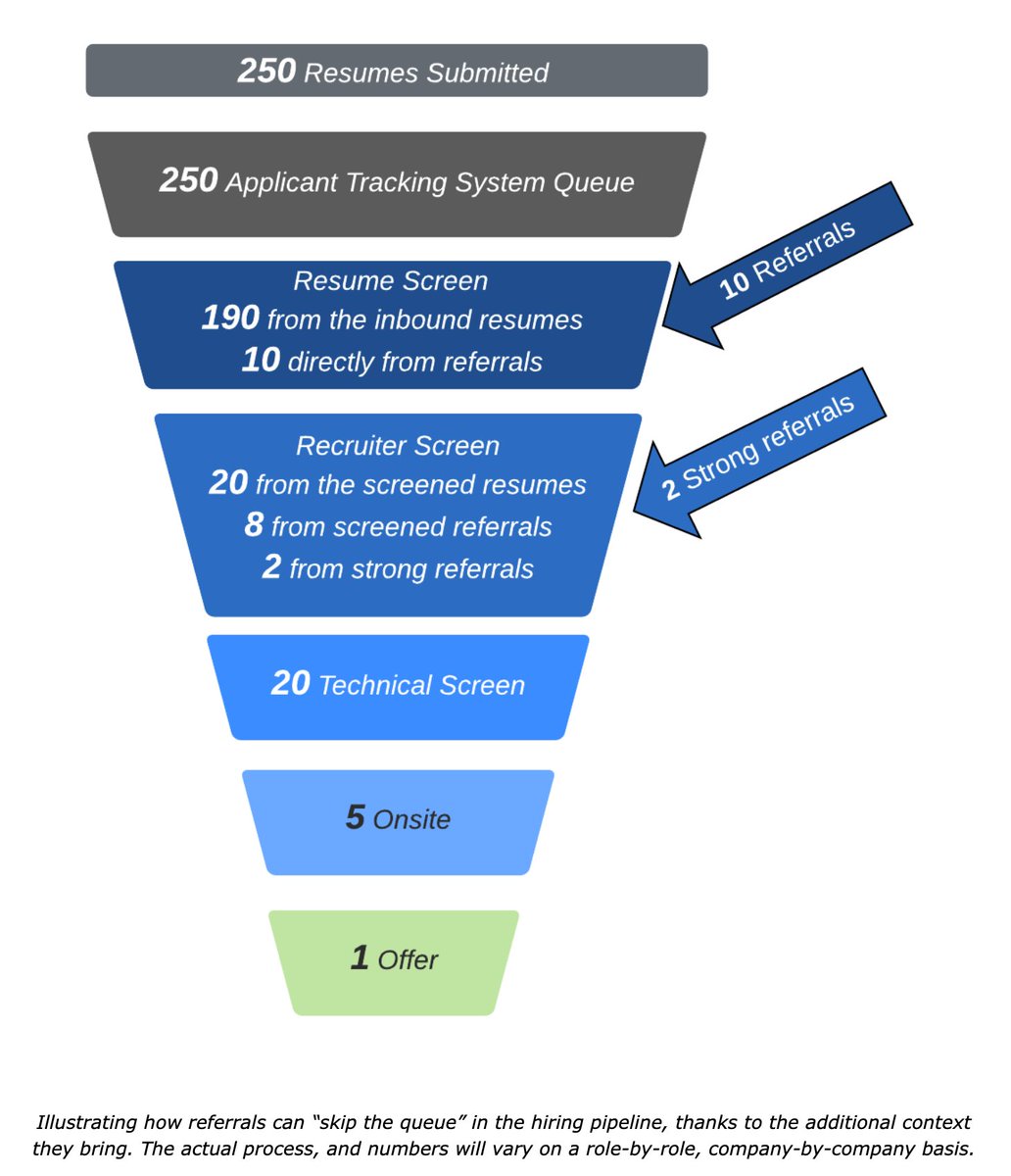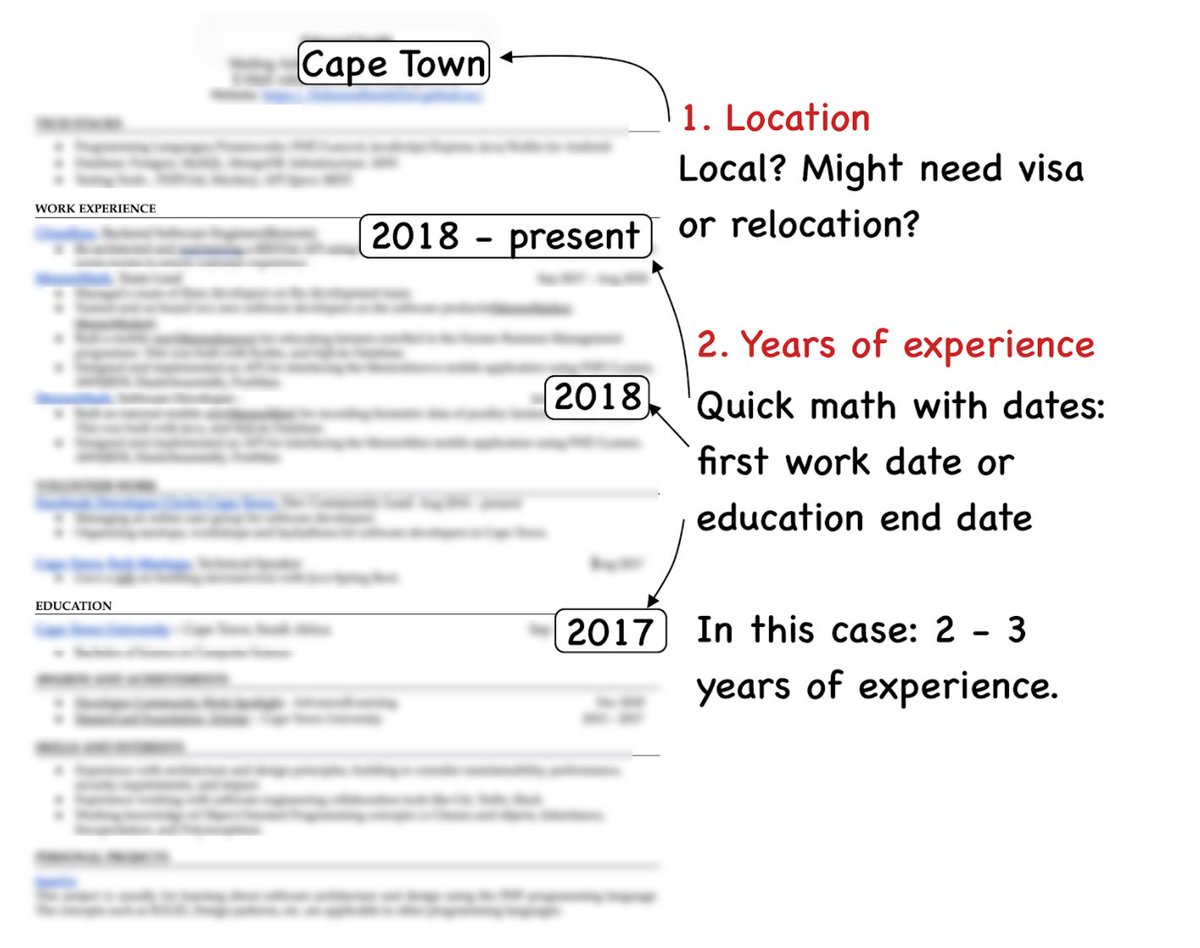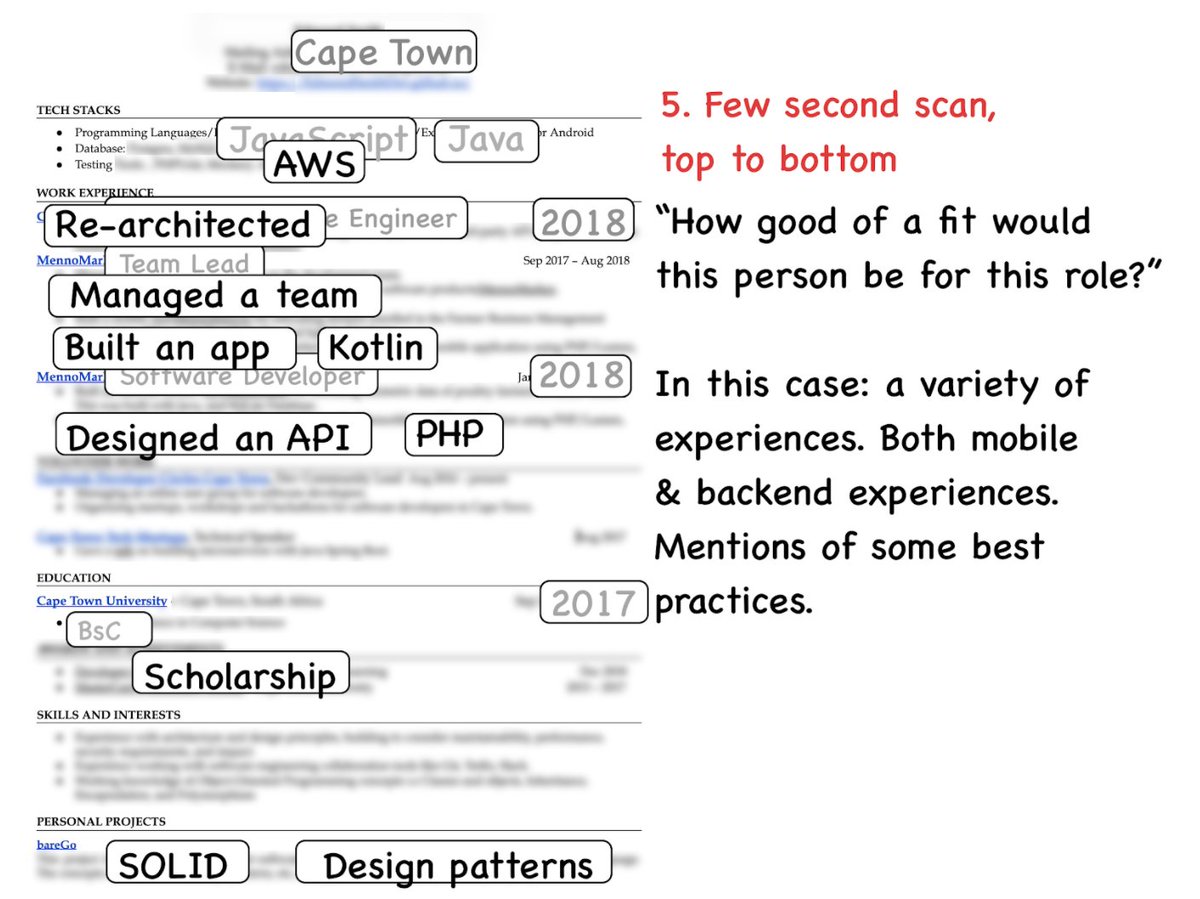
I've been writing the ebook thetechresume.com on the side for a few months, and launched it 13 days ago.
In this 13 days it made $13,000, and $18K since I started, with more than 2,000 customers.
This is about 13x what I expected. Thread on how it got here.
In this 13 days it made $13,000, and $18K since I started, with more than 2,000 customers.
This is about 13x what I expected. Thread on how it got here.
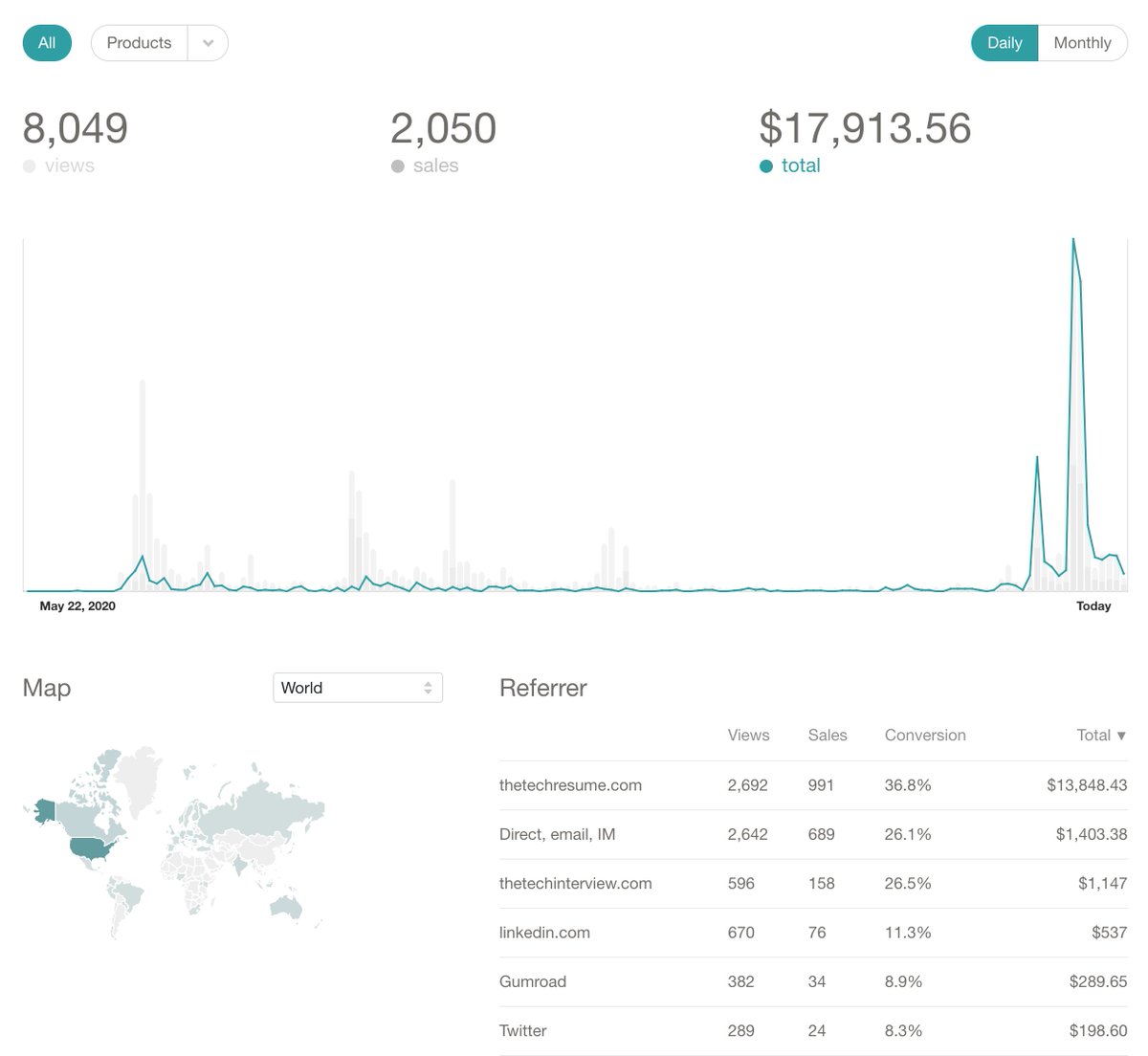
It all started with COVID, layoffs happening across the tech industry, and me wondering how I can help. I offered to do a few resume reviews, being a hiring manager myself:
https://twitter.com/GergelyOrosz/status/1263855589861580800
I thought I'll get a handful of responses. I got 300+. There was no way I could give thorough feedback on all of it. So I decided to scale myself: do in-depth review of the first 50, take notes, then send those compiled notes to others. Here's that PDF: thetechresume.com/samples/origin…
I kept getting more requests. I was already in the middle of writing my first book - blog.pragmaticengineer.com/book/ - and I figured I could write a (short) ebook on resumes, do a dry run for my book, and help others.
But first, to validate interest:
But first, to validate interest:
https://twitter.com/GergelyOrosz/status/1268613339216670727
In less than 24 hours, I got 1,000 beta reader volunteers (later, about 350 actually grabbed the book - "free" is not that sticky).
I created a product on @gumroad, announced preorders, and started writing. I got 126 preorders for $1,253 the first week.
I created a product on @gumroad, announced preorders, and started writing. I got 126 preorders for $1,253 the first week.
https://twitter.com/GergelyOrosz/status/1269267007733739521
Wrote, got feedback from readers, reached out for feedback to industry veteran hiring managers and recruiters, wrote some more, and created a DIY landing page on the way. The beta raised $3,500, all of it (now) donated to @hackyourfutures, @DiversifyTechCo & a NZ STEM org. 

Getting ready for launch, I redid the website. Note to self: buy a template next time, over building your own
I used pragmaticurl.com/devbook & pragmaticurl.com/frontendor
https://twitter.com/GergelyOrosz/status/1317835490566045697?s=20
I used pragmaticurl.com/devbook & pragmaticurl.com/frontendor
2 weeks ago, I launched. I did a launch on Twitter, LinkedIn & Facebook. I got some feedback on the price being more expensive at places with high VAT, which gave me the idea to add PPP support in a day.
Since adding it, 30-40% of sales are PPP.
Since adding it, 30-40% of sales are PPP.
https://twitter.com/GergelyOrosz/status/1315699026445074434
Stats since the launch. The HN launch was the biggest bang. I got lucky there, and the content & me being present to answer went well: news.ycombinator.com/item?id=247776…
Adding a higher prices tier, and collaborating with @StandardResume also worked out well.

Adding a higher prices tier, and collaborating with @StandardResume also worked out well.


Oh, fun fact. I had a section in the book where I looked through resume generators. They generally are terrible, with resumes tech HMs won't appreciate.
An exception was @StandardResume. But I was missing something from their templates. I pinged them, and we created these:

An exception was @StandardResume. But I was missing something from their templates. I pinged them, and we created these:


What's next? I'll still do a Product Hunt launch later, and share more of the book as blog posts. But I'll start shift focus to my "original" book on leveling up as a software engineer: blog.pragmaticengineer.com/book/
In closing, it's incredible how easy it's gotten to get an ebook/course out to people. @gumroad is a game changer with low fees, and easy distribution.
More details on Indie Hackers: indiehackers.com/product/the-te…
Thanks to everyone who supported so far! AMA.
More details on Indie Hackers: indiehackers.com/product/the-te…
Thanks to everyone who supported so far! AMA.
• • •
Missing some Tweet in this thread? You can try to
force a refresh


